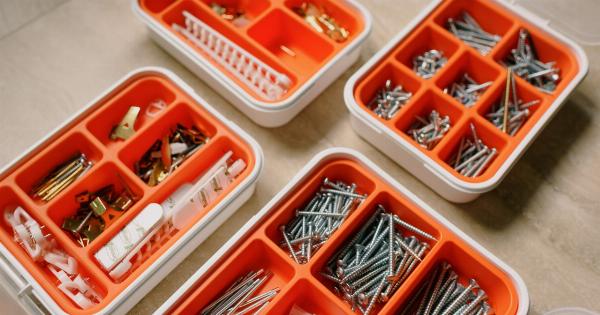Fall is a beautiful season with cooler temperatures and festive activities, but it also brings along a range of allergens that make life difficult for people with allergies. Ragweed, mold, and dust mites are some common triggers of fall allergies.
It’s essential to manage your allergies effectively to maintain good health and enjoy the season.
1. Identify Your Allergens
Before you can manage your allergies, you must know what triggers them. Some people have allergies to multiple substances, while others have a specific allergy. Common allergens in the fall include:.
- Ragweed
- Mold spores
- Dust mites
- Pet dander
- Pollen from weeds and grass
If you’re not sure what you’re allergic to, see an allergist for testing. Once you’ve identified your triggers, you can take steps to avoid or minimize contact with them.
2. Keep Your Home Clean
Indoor allergens like mold and dust mites can trigger allergies all year round, but they can be particularly problematic in the fall when people spend more time indoors. Keep your home clean and decluttered to reduce the number of allergens in the air.
Vacuum carpets, rugs, and furniture regularly. Use a vacuum cleaner with a HEPA filter to trap allergens and prevent them from circulating in the air. Wash bedding, curtains, and other linens in hot water to kill dust mites.
Use a dehumidifier to reduce indoor humidity and discourage mold growth.
3. Minimize Outdoor Exposure
When outdoor allergens like ragweed and pollen are triggers, stay indoors as much as possible. Check local weather reports for information on allergen levels, and stay inside on days when they’re high.
Keep windows and doors closed, and use air conditioning to keep your home cool and comfortable.
If you need to go outside, wear a mask designed to filter out allergens. Avoid outdoor activities like gardening and yard work that can expose you to allergens.
Take a shower and change your clothes when you come inside to rinse off any allergens you may have picked up.
4. Use Medications Properly
Allergy medications like antihistamines, decongestants, and nasal sprays can help manage symptoms like runny nose, congestion, and itchy eyes. Consult your doctor or allergist about the best allergy medication for your needs.
Be sure to use medications as directed. Take them at the recommended time and dose, and don’t skip doses. If you’re using a nasal spray, follow the instructions carefully to avoid damaging your nasal passages.
If you have concerns or side effects, contact your doctor.
5. Consider Immunotherapy
Immunotherapy, or allergy shots, can help reduce allergy symptoms over time. In immunotherapy, you receive injections of allergens in gradually increasing doses to desensitize your immune system to them.
This can reduce the severity of your allergies and in some cases, cure them entirely.
Immunotherapy is a long-term treatment, and it can take several months or years to see results. Talk to your allergist about whether immunotherapy is right for you.
Conclusion
With some planning and effort, you can manage your fall allergies effectively. Identify your allergens, keep your home clean, minimize outdoor exposure, use medications properly, and consider immunotherapy.
By taking these steps, you can reduce the impact of allergies on your life and enjoy all that fall has to offer.































